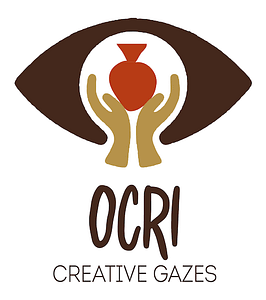The Certification of Handicraft Products
The certification of handcrafted products is an official process that confirms the origin, quality, and compliance of a product with the traditions and techniques developed in a particular region. Its aim is to recognise cultural traditions and ancestral skills, encourage local production, preserve cultural heritage, and protect against counterfeiting.
To be certified, products undergo a rigorous evaluation process that includes quality and cultural relevance analyses, ensuring that each certified piece respects the historical legacy of a community.
In Portugal, A.Certifica is the only Certification Body for products accredited by IPAC. Currently, Portugal has 26 certified products in various categories, such as textiles, ceramics, jewellery, musical instruments, and natural fibres.
Involving the standardisation of processes, materials, and techniques that must follow strict guidelines outlined in specification documents, certification can sometimes limit experimentation and innovation in traditional crafts. However, by understanding cultural heritage as a constantly evolving process, shaped by the perceptions of those who admire it, there is room for a new understanding of tradition. This dynamic perspective highlights the ability of traditions to adapt and transform, reflecting both historical practices and contemporary innovations, making craftsmanship a living reflection of cultural changes and the new interpretations that emerge over time.
Innovation in Handicrafts
Normally associated with the past, with techniques preserved by a community and raw or natural materials, traditional crafts may seem lacking in innovation. However, as part of the Creative Industries, craftsmanship is not immune to market dynamics and contemporary cultural trends. It is influenced by consumer patterns, fashions, and a growing demand for sustainable and ethical products. Moreover, as a form of creative expression and an element of cultural heritage, it transcends functionality, communicating traditions, ideas, and evoking emotions. This involves exploring new forms, colours, and techniques that can tell new stories or provide fresh perspectives on old ones, making each creation relevant and resonant with today’s audience.
On this platform, we highlight how innovation in Portuguese crafts emerges organically, where tradition and creativity intertwine to breathe new life into cultural heritage. Many of the artisans featured here reinvent traditional techniques, bringing renewal to their creations. From the construction of collaborative networks designed to create highly complex pieces to the personalisation of products that forge emotional connections with clients, each artisan finds unique ways to innovate. These practices demonstrate that innovation in craftsmanship can arise both from the cooperation between diverse talents and from creative adaptation to the current needs and desires of consumers. It is this ability to transform the familiar into something surprising that keeps craftsmanship alive and vibrant, reflecting the perceptions and interests of new generations and ever-widening audiences. At Ocri, we believe that it is through reinterpretations— including those expressed in our texts and images— that traditional crafts remain relevant, connected to the present, and open to the future.
Although products and know-how are preserved by methods such as certification, innovation in craftsmanship is constant. It occurs not only in changes to the products themselves but also in production processes, business management, and communication and marketing strategies. This platform takes a holistic approach to innovation in traditional crafts, aiming to help artisans position themselves actively in a globalised market and encouraging collaboration among creatives from various fields to contribute ideas and perspectives, allowing traditional products to be respectfully (re)viewed through a contemporary lens, capable of inspiring and moving new generations.



